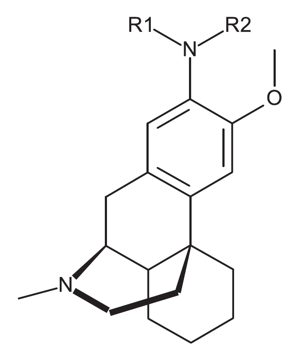Many active substances pass the blood-brain barrier and cause unwanted side effects in the head. This is the case with some medicines (antihistamines) that are now used in spring to treat allergies. The same applies to many highly effective painkillers. The further development of these useful active substances into new types of drugs that do not cause the side effects that occur in the mind is therefore of great importance.
Prof. Dr. Eckhard Lammert, Director of the Institute of Vascular and Islet Cell Biology at the German Diabetes Centre (DDZ) and Head of the Institute of Metabolic Physiology at the Heinrich Heine University (HHU) in Düsseldorf, has now worked with his team and colleagues from the University Hospital Düsseldorf (UKD) and chemists from Dortmund to further develop a cough-relieving active ingredient that is contained in the products Silomat and Wick MediNait. The active ingredient "dextromethorphan" is chemically related to morphine and interested Prof. Lammert because it not only suppresses the urge to cough, but also has many other positive effects. These include relieving pain and lowering blood glucose (blood sugar) in people with diabetes mellitus. His team has modified dextromethorphan so that it no longer crosses the blood-brain barrier and therefore does not cause side effects such as dizziness and fatigue, but still exerts its full beneficial effects outside the brain. "The observation that the new agents have significantly fewer side effects makes them interesting candidates for the future of diabetes therapy," explains Prof. Michael Roden, Scientific Director and Board Member of the DDZ. "Despite the availability of numerous drugs for diabetes therapy, there is still a need for more effective and better tolerated forms of therapy for targeted diabetes treatment."
For the future, Prof. Lammert also sees the possibility of developing opiates and morphine without addictive potential. After he and his team received a US patent for these new active substances in 2019, the research work was published this week in the renowned US journal "Cell Chemical Biology" (see Scholz et al., Cell Chem Biol 2021). Now, together with the Heinrich Heine University (HHU) and with the support of the German Diabetes Centre (DDZ), a company is to be founded to further develop these active substances towards pharmaceuticals. Prof. Lammert: "As a society, we are called upon to fight diseases better than before. Unfortunately, the work on better therapies is associated with many risks, but - as we could see with the vaccines against Covid-19 - sometimes quite rewarding for society," explains Prof. Lammert.
The German Diabetes Centre (DDZ) sees itself as a German reference centre for diabetes. The aim is to contribute to improving the prevention, early detection, diagnosis and therapy of diabetes mellitus. At the same time, the epidemiological data situation in Germany is to be improved. The DDZ is in charge of the multi-centre German Diabetes Study. It is the contact for all actors in the health care system, prepares scientific information on diabetes mellitus and makes it available to the public. The DDZ belongs to the "Wissenschaftsgemeinschaft Gottfried Wilhelm Leibniz" (WGL) and is a partner in the German Centre for Diabetes Research (DZD e. V.).
Current DDZ press releases can be found on the internet at www.ddz.de
DDZ press photos may only be used for editorial purposes with the photo credit: "Source: DDZ e. V.". Printing is free of charge. However, we request that you send us a specimen copy or a reference to the place of publication.
Contact at DDZ:
Gordon McBane
Press Officer
German Diabetes Center (DDZ)
Leibniz Centre for Diabetes Research
at the Heinrich Heine University Düsseldorf
Tel.: 0211-3382-450
E-mail:


